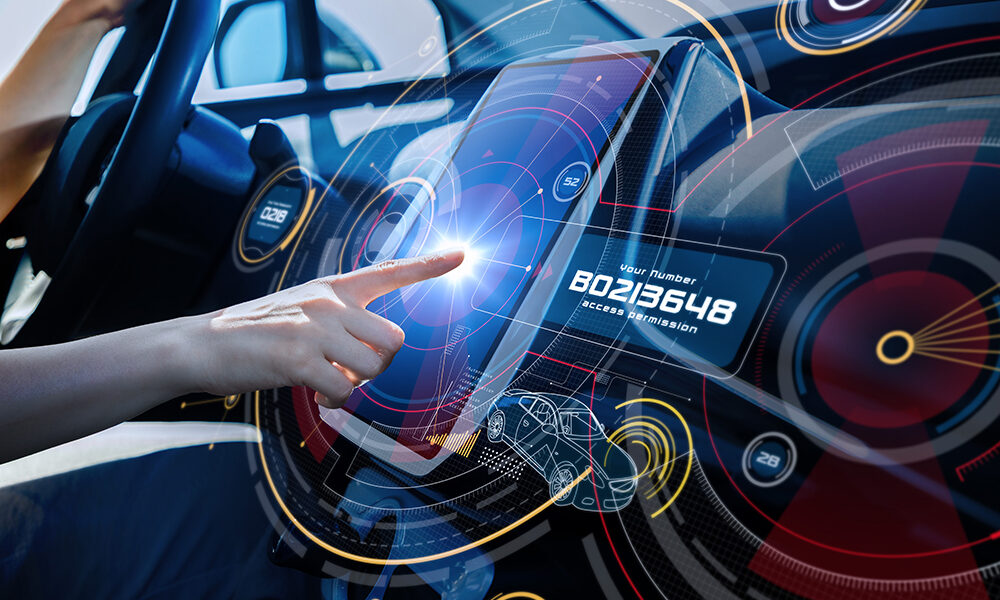When was the last time your car told you something was wrong, before it actually broke down?
It is the power of car software in the Electric Vehicle (EV) era. From real-time diagnosis to adaptive performance setting, the software has moved from a support action to modern mobility to take the center stage. The electric vehicle, once considered a mechanical miracle, is now operated by code as power.
And at the heart of it all? A rapidly evolving world of automotive software development services that are rewriting the rules of how vehicles operate, communicate, and adapt.
The Shift: From Hardware-First to Software-Defined
Automotive engineering used to focus predominantly on mechanical aspects, where discussions revolved around horsepower, gears, and torque. However, the emergence of electric vehicles has shifted the conversation. Modern electric vehicles rely on dozens of interconnected ECUs (Electronic Control Units), sensors, and processors.
These systems don’t just execute commands — they make decisions. Everything from battery management to regenerative braking is now governed by intelligent, real-time logic built by automotive software development companies.
How Software Is Enhancing EV Performance
Unlike combustion engines, EVs offer a digital control layer that enables precise manipulation of vehicle performance through software updates. Here’s how it’s transforming the game:
- Battery Management Systems (BMS)
The battery serves as the heartbeat of an electric vehicle. Advanced automotive software ensures optimal battery usage by monitoring charge cycles, cell balancing, temperature control, and degradation prediction. A well-architected BMS can add years to battery life and prevent breakdowns before they happen.
- Powertrain Optimisation
EVs may lack gears, but they still require performance control. Intelligent software ensures smooth acceleration, dynamic torque delivery, and efficiency adaptation based on road conditions and driving habits. Software-defined driving modes (eco, sport, etc.) are custom-tuned for different users, all with lines of code.
- Over-the-Air (OTA) Updates
One of the biggest revolutions in EV technology is the ability to improve vehicle performance post-sale. OTA updates allow automakers to push software patches and enhancements, meaning your car can literally get smarter, faster, and more efficient overnight.
Diagnostics 2.0: Intelligent Monitoring & Predictive Maintenance
Gone are the days when a dashboard warning light was the only sign of trouble. Today, automotive software enables granular, real-time diagnostics that go far beyond the basics.
- Sensor Fusion: Combining data from multiple vehicle sensors (e.g., battery health, motor temperature, tyre pressure) to generate a holistic performance map.
- AI-Powered Fault Prediction: Machine learning algorithms now detect patterns in component behaviour and predict failures before they occur.
- Remote Access Diagnostics: Technicians no longer need to connect via cable. Modern software allows full remote diagnostics, reducing time, costs, and guesswork.
This kind of precision wouldn’t be possible without specialised automotive software development services designed for scalable, connected vehicle ecosystems.
Customisation Through Code
Today’s EV drivers expect more than just efficiency — they want personalisation. Software connects manufacturer configurations with user-specific driver preferences.
From climate control presets and voice commands to autonomous parking systems and navigation behaviour, EV customisation is driven entirely by modular software architectures. That means the experience is constantly evolving — and improving — without hardware changes.
Even safety features like lane assistance, automatic braking, and blind-spot monitoring are governed by software models that adapt through updates and feedback.
The Connected Future of Mobility
EVs are no longer standalone machines. They’re connected devices — sharing data with cloud platforms, mobile apps, charging infrastructure, and even smart homes.
Automotive software development companies are crucial in this context:
- Real-time analytics for location, usage, and performance through telematics integration.
- Vehicle-to-Everything (V2X) technology facilitates communication with traffic signals, nearby vehicles, and infrastructure.
- Implementation of data security protocols ensures encryption, safety, and compliance with regulations.
The future of EVs is not just electric. It’s connected, autonomous, and intelligent — and software is the glue holding it all together.
What This Means for the Industry
With each passing year, the automotive sector is becoming more dependent on software capabilities than mechanical innovations. This transformation is demanding a new generation of developers, engineers, and solution architects who understand both mobility and machine logic.
From large-scale OEMs to agile start-ups, the demand for high-performance, scalable, and secure automotive software is only growing. And it’s not just about writing code — it’s about shaping the next wave of sustainable, smart transport.
Modern electric vehicles are supercomputers on wheels. Performance, diagnosis, safety, and driver experience are no longer bound by physical components – they are powered by intelligent code lines developed by expert teams from software development company in mumbai.
When the industry is against automation, electrification, and connection, the need for strong car development services is no longer optional.


